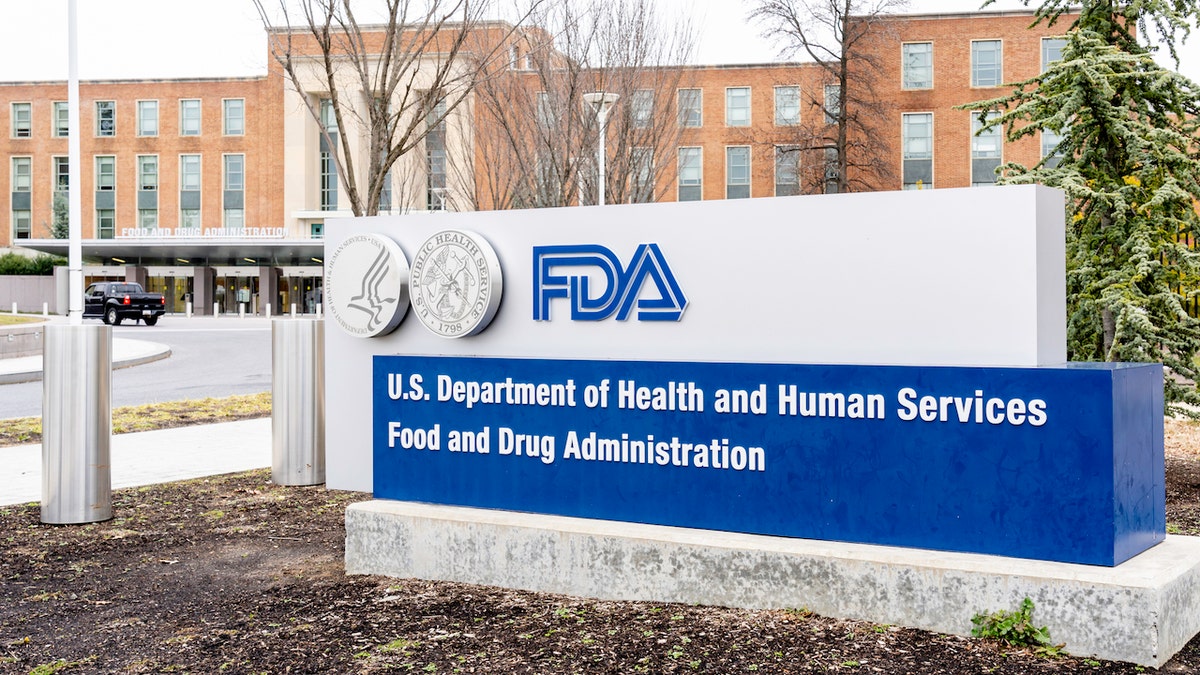Health
Patients with metastatic colorectal cancer could find hope in new FDA-approved treatment

This month brought some hopeful news for people who are battling metastatic colorectal cancer.
The U.S. Food and Drug Administration (FDA) on Nov. 8 approved a new oral medicine called Fruzaqla (fruquintinib) for the treatment of patients with previously treated metastatic colorectal cancer.
Up until now, patients with this condition have had limited treatment options — including surgery, chemotherapy, radiation and immunotherapy.
IN POTENTIAL CANCER BREAKTHROUGH, NEWLY FOUND ‘KILL SWITCH’ TRIGGERS DEATH OF CANCER CELLS: ‘ONE-TWO PUNCH’
Fruzaqla is the first chemotherapy-free treatment option to be approved for metastatic colorectal cancer in more than a decade, according to a press release from the drug’s manufacturer, Takeda.
“We are very encouraged by the FDA’s decision, given the pressing need for new treatments for individuals with metastatic colorectal cancer who have had limited options and continue to face poor outcomes,” Teresa Bitetti, president of the Global Oncology Business Unit at Takeda in Cambridge, Massachusetts, wrote in a statement to Fox News Digital.
Fruzaqla is the first chemotherapy-free therapy to get approved for metastatic colorectal cancer treatment in more than a decade, according to a press release from the drug’s manufacturer, Takeda. (iStock)
“We see this as a positive step forward for patients and their providers as they evaluate options at this stage in their battle with colorectal cancer.”
LUNG CANCER PILL SHOWS ‘EARTH-SHATTERING’ RESULTS IN 5-YEAR STUDY: ‘AN OPTIMISTIC TIME’
The FDA’s approval comes after two large Phase 3 trials that were published in The Lancet and in the Journal of the American Medical Association.
Participants took 5 mg of the medication orally once per day for the first 21 days of each 28-day cycle “until disease progression or unacceptable toxicity,” the FDA stated in a release on its website.

Some 106,970 new cases of colon cancer and 46,050 new cases of rectal cancer are expected in the U.S. in 2023, says the American Cancer Society (ACS). (iStock)
In both trials, the drug extended overall survival and showed “consistent benefit” among 734 patients.
In one of the trials, called FRESCO, the median overall survival was 9.3 months on Fruzaqla compared to 6.6 months among the placebo group.
In the other trial, FRESCO-2, the median overall survival on the drug was 7.4 months compared to 4.8 months.
WHY IMMUNOTHERAPY IS EMERGING AS THE ‘FOURTH PILLAR’ OF CANCER TREATMENTS, EXPERTS SAY
“Patients with metastatic disease are often fragile and fatigued, due to both their condition as well as the therapies they have been exposed to,” said Cathy Eng, M.D., at Vanderbilt University Medical Center in Nashville, Tennessee, in the press release.
“An oral, chemotherapy-free option that offers a survival benefit despite treatment with prior therapies is a critical need for treating metastatic colorectal cancer.”

Participants took 5 mg of the medication orally once per day for the first 21 days of each 28-day cycle “until disease progression or unacceptable toxicity,” the FDA stated in a release on its website. (iStock)
Maged Khalil, M.D., a hematologist and medical oncologist at Lehigh Valley Topper Cancer Institute of Leigh Valley Health Network in Pennsylvania, was not involved in the making or testing of the new medication but commented on its potential.
“The FDA approval of fruquintinib (Fruzaqla, Takeda Pharmaceuticals, Inc.) for adult patients with metastatic colorectal cancer who received prior fluoropyrimidine-, oxaliplatin- and irinotecan-based chemotherapy has the potential to benefit overall patient survival in refractory metastatic colorectal cancer, notably including a 34% reduction in the risk of death,” he told Fox News Digital.
CLICK HERE TO SIGN UP FOR OUR HEALTH NEWSLETTER
“This is a monumental and significant evolution in our ability to treat patients with metastatic colorectal cancers,” Khalil went on.
“Studies to combine Fruquintinib with checkpoint inhibitors are in progress, and it would be interesting to see these results, all to the benefit of patients.”

The Food and Drug Administration (FDA) approved Fruzaqla on Nov. 8 for the treatment of patients with previously treated metastatic colorectal cancer. (iStock)
The most common adverse reactions, reported by roughly 20% of patients, included hypertension, protein in urine, voice disorders, abdominal pain, diarrhea, muscle weakness, and swelling and blistering on the palms of the hands and soles of the feet, according to the FDA.
Approximately 106,970 new cases of colon cancer and 46,050 new cases of rectal cancer are expected in the U.S. in 2023, according to the American Cancer Society (ACS).
About 52,550 people are expected to die of the disease this year.
Approximately 70% of people with colorectal cancers will experience metastatic disease, which is the leading cause of mortality among patients.
For more Health articles, visit www.foxnews.com/health.

Health
Can Cayenne Really Burn Fat? The Truth About This Spicy Weight-Loss Trend

Use left and right arrow keys to navigate between menu items.
Use escape to exit the menu.
Sign Up
Create a free account to access exclusive content, play games, solve puzzles, test your pop-culture knowledge and receive special offers.
Already have an account? Login
Health
US sees cases of new COVID-19 variant linked to surge in China: report

The Centers for Disease Control and Prevention (CDC) has detected multiple cases of the new COVID-19 variant NB.1.8.1, which has been linked to a spike in cases in China. A CDC spokesperson confirmed the findings to Fox News Digital, but said there had been too few cases for the strain to be included in the agency’s COVID Data Tracker.
Puseletso Lesofi prepares to sequence COVID-19 omicron samples at the Ndlovu Research Center in Elandsdoorn, South Africa Wednesday, Dec. 8, 2021. (AP Photo/Jerome Delay)
A LOOK BACK AT THE EARLY DAYS OF CORONAVIRUS SPREAD
“There have been fewer than 20 sequences of NB.1.8.1 in the U.S. baseline surveillance data to date, so it has not met the threshold for inclusion in the COVID Data Tracker dashboard,” a CDC spokesperson told Fox News Digital. “We monitor all SARS-CoV-2 sequences, and if it increases in proportion, it will appear on the Data Tracker dashboard.”
The cases were reportedly detected through the CDC’s airport screening program, according to CBS News, though the CDC spokesperson did not confirm this to Fox News Digital.

Syringe for testing COVID. (iStock)
TRUMP’S ‘MAKE AMERICA HEALTHY AGAIN’ COMMISSION TO TARGET AUTISM, CHRONIC DISEASES
While the CDC has detected the new variant in the U.S., the agency also reported on May 23 that emergency room visits for influenza, COVID and RSV are currently “very low.” In its two-week predictions for COVID and influenza, the CDC said it expects the number of ER visits will likely stay at the current low level.
A CDC map showing COVID-19 cases detected through wastewater (sewage) testing indicates that most states are seeing either low or very low levels of the virus. The only state experiencing a high level of viral activity, according to CDC data, is South Dakota.

A man has his swab sample taken for a nucleic acid test for the coronavirus disease at a testing booth in Beijing, China on Nov. 11, 2022. (Reuters/Tingshu Wang)
The COVID-19 NB.1.8.1 variant has been linked to a high number of cases in China and Hong Kong.
Earlier this month, Hong Kong authorities issued a statement urging the public — especially high-risk individuals — to wear surgical masks. However, the statement also noted that there is no evidence NB.1.8.1 is more serious than other COVID-19 variants.
Health
Carnie Wilson’s Gluten-Free Diet Helped Her Lose 40 Lbs & Ease Pain

Use left and right arrow keys to navigate between menu items.
Use escape to exit the menu.
Sign Up
Create a free account to access exclusive content, play games, solve puzzles, test your pop-culture knowledge and receive special offers.
Already have an account? Login
-

 Technology1 week ago
Technology1 week agoLove, Death, and Robots keeps a good thing going in volume 4
-

 Technology1 week ago
Technology1 week agoMeta asks judge to throw out antitrust case mid-trial
-

 Movie Reviews1 week ago
Movie Reviews1 week agoClassic Film Review: ‘Mad Max: Fury Road’ is a Lesson in Redemption | InSession Film
-

 World1 week ago
World1 week agoCommissioner Hansen presents plan to cut farming bureaucracy in EU
-

 Politics1 week ago
Politics1 week agoDem senator says 'no doubt' Biden declined cognitively during presidency
-

 News1 week ago
News1 week agoVideo: Doctors Heal Infant Using First Customized-Gene Editing Treatment
-

 News1 week ago
News1 week agoNew Orleans jailbreak: 10 inmates dug a hole, wrote ‘to easy’ before fleeing; escape plan found
-

 World1 week ago
World1 week agoLeak: Commission to launch PFAS clean-ups in water resilience strategy












